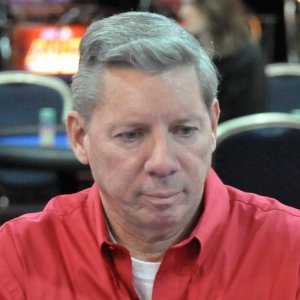Poker Community Dismayed By RAWA Supporters' Ignorance

 Wednesday’s hearing on Restoration of America’s Wire Actin the House Judiciary Subcommittee on Crime, Terrorism, Homeland Security, and Investigations predictably featured much fear-mongering from the bill’s advocates, contrasted with cool-headed and fact-based testimony presented by its opponents. With the ability to watch the proceedings unfold online, the poker community got a front row seat and was generally shocked by how RAWA’s supporters fail to grasp concepts surrounding the bill. Las Vegas Sands CEO Sheldon Adelson (pictured) is pushing the bill.
Wednesday’s hearing on Restoration of America’s Wire Actin the House Judiciary Subcommittee on Crime, Terrorism, Homeland Security, and Investigations predictably featured much fear-mongering from the bill’s advocates, contrasted with cool-headed and fact-based testimony presented by its opponents. With the ability to watch the proceedings unfold online, the poker community got a front row seat and was generally shocked by how RAWA’s supporters fail to grasp concepts surrounding the bill. Las Vegas Sands CEO Sheldon Adelson (pictured) is pushing the bill.
“Being well spoken or having an understanding of the topic you are debating is not required to be a politician,” tweeted poker pro Daniel Negreanu to his 346,000 followers.
Indeed, the technological aspect of the industry is the centerpiece of RAWA supporters’ “concern” about legalizing internet gambling. The bill’s sponsor,Jason Chaffetz (R-Utah), warned that it was “naïve at best to think you can suddenly just create these fictitious borders because of technology and prohibit [online gambling] coming into the state of Utah.”
 Repeating a statement which he had previously given to the media, Chaffetz (pictured) claimed that a “good 16-year-old” could figure out a way to “spoof this or put some virtual private network out there.” He argued it was “fiction for anyone to believe they can virtually create these borders.”
Repeating a statement which he had previously given to the media, Chaffetz (pictured) claimed that a “good 16-year-old” could figure out a way to “spoof this or put some virtual private network out there.” He argued it was “fiction for anyone to believe they can virtually create these borders.”
But in fact, the Poker Players Alliance held a demonstration which clearly explained the geolocation and player verification technology used by regulated online gambling sites to ensure users are playing on the site legally. Chaffetz, however, failed to attend, although his staff did.
WiredSafety CEO Parry Aftab testified that there is virtually no evidence that minors or out-of-state players have been able to access the site. “It is much easier for them to get fake IDs and wander into a brick-and-mortar casino than get past the levels of age-gating used by online casinos,” she said. “If you can’t prove that you are an adult, the site is closed to you. Period.”
The poker community was quick to applaud Aftab for her solid testimony against the bill. “Shoutout to @parryaftab and @amoylan for providing factual testimony amongst all the nonsense,” tweeted PokerNews editor Donnie Peters.
Washington University professor Michael Fagan, who was called to testify in support of RAWA, brought up his familiar and hyperbolic claims that online gambling would enable terrorists to launder money to be used for attacks on the US. Victor Rocha, editor of Pechanga.net, chimed in, saying that the “hearing on Sheldon Adelson’s bill to ban online gambling is an exercise in fear-mongering.”
 Gaming attorneyJeff Ifrahagreed, tweeting in jest, “According to all witnesses, internet gaming leads to terrorism, collapse of financial markets, and end of world order.”
Gaming attorneyJeff Ifrahagreed, tweeting in jest, “According to all witnesses, internet gaming leads to terrorism, collapse of financial markets, and end of world order.”
WPT host Mike Sexton (pictured) voiced his own frustration with the hearing, saying, “Watching the hearing on HR707 (Restoration of America’s Wire Act). In recess – Painful that no one’s speaking on behalf of poker players.”
While Aftab and R Street Institute Executive Director Andrew Moylan testified against the legislation, some questioned why no actual regulators were called to speak at the hearing. Even so, the uncompromising anti-gambling views held by some of the RAWA supporters likely worked against their efforts to ban i-gaming. Poker journalist Steve Ruddock pointed out, “In a hearing to placate a casino billionaire, at least two of the ‘star’ witnesses would shut his casino business down if given the chance.”
While the majority of the anti-online gambling testimony given at the hearing angered many in the poker community, most watchers believe that the blatant hypocrisy and absurdity of the apocalyptic scenarios suggested would only work against RAWA’s supporters.
Want the latest poker headlines and interviews? Follow PocketFives on Twitterand Like PocketFives on Facebook.




